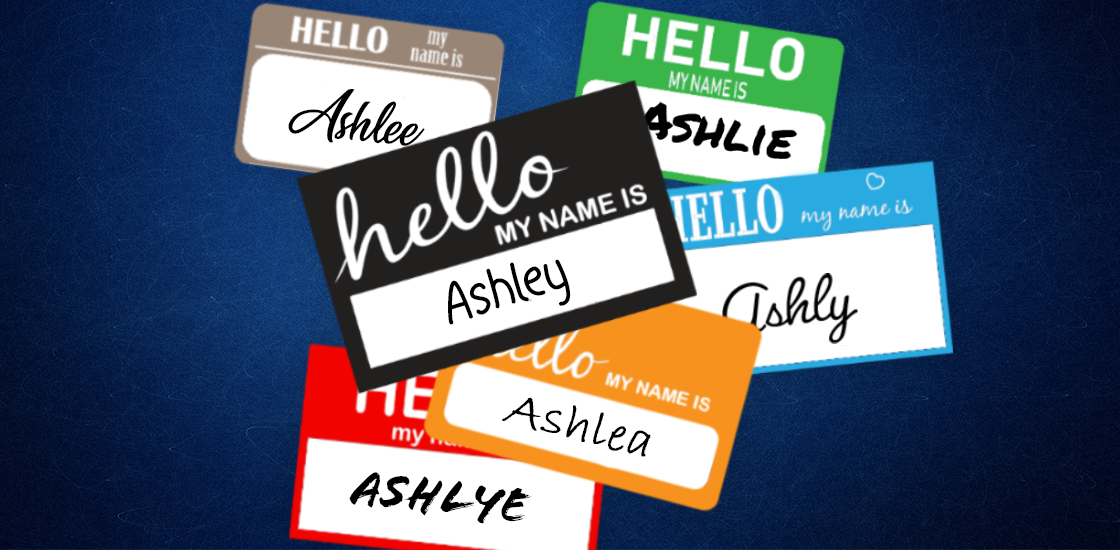When cleansing your contact database, ensuring your contact records have genuine names is one of the most important aspects. Our DOTS Name Validation service provides a valuable resource to companies worldwide looking to validate and cleanse first and last names in order to save time and money, as well as improve client relations. Having a correct and legitimate name for a contact record can ensure a good first impression with a customer or prospect, and can reduce the risk of fraud associated with a fake, bogus, or vulgar name. This article examines two of the new features of the latest release of our name verification service.
New features for Name Validation: Single Name Validation and Improved Detection
Our services are constantly evolving to meet the needs of our dynamic, data-driven world. Our name verification service has two new features we discuss here: single name validation and improved detection of compound dictionary words. Let’s see how they work and why they are useful.
How single name validation works
These new features are easy to use and implement. Given a single name, the service will attempt to identify the input as a first or last name, then will validate it against our proprietary database of millions of global names. For the case of a dictionary word or phrase, it is parsed and categorized, and flagged as such. Then, just like with full name validation, the service will output a collection of associated data and valuable quantitative scoring aspects for celebrity, vulgarity, garbage, and bogus names, as well as a dictionary score and an overall name score. For example, let’s take a look at sample outputs for a couple of single names:
Sample Input 1: “Nothing”
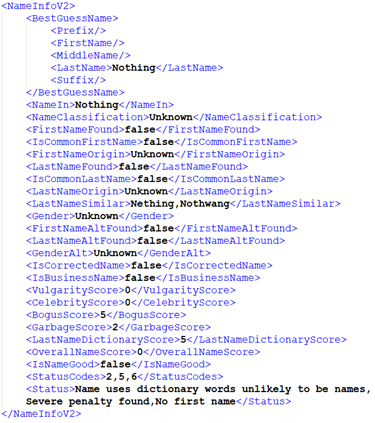
This is a common input people will use in order to sign up for something without giving their information. As you can see, with Name Validation, an input like this will throw a high score in the Bogus score field and Dictionary score field, which in turn lowers the Overall score to the lowest possible value of 0. Flagging the different types of scores and/or the Overall score at point of entry is a good way to make sure these contacts don’t make it very far in your system.
Sample Input 2: “Alexandra”
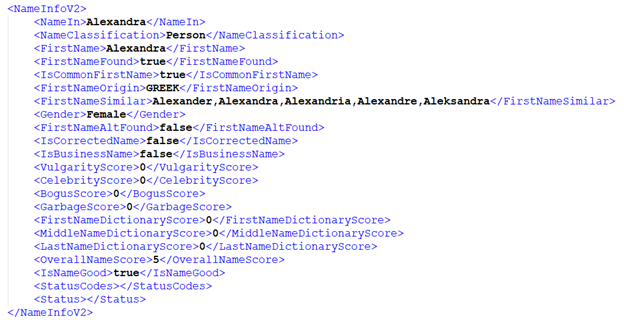
This is an example of a “good” name that you would want to keep in your system or allow it through as a new user or client. All of the checks for celebrity, vulgarity, garbage, bogus, and dictionary scores come back clean, and the Overall score is a 5, indicating the best possible case for a name.
Dictionary detection use case: Ridesharing apps
In order to take a look at the powerful, new and improved dictionary word/phrase detection, let’s take a look at the use case of ridesharing apps. If you’ve ever downloaded a ridesharing app, whether as a driver or a passenger, you know that adding a name is a requirement. Although you are allowed to make your name anything you wish, some scenarios are a cause for concern.
Problematic Driver Name: “Big Tips Please”
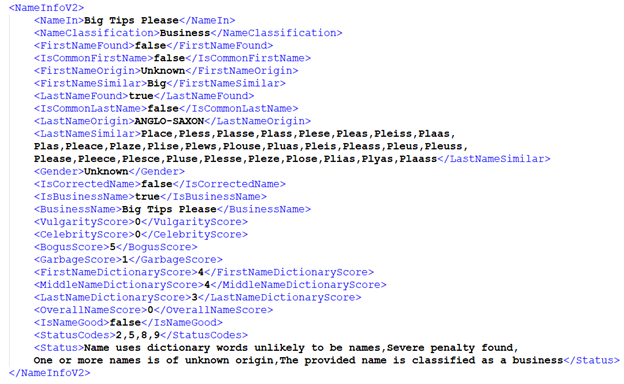
Someone riding as a passenger would most likely be displeased to have this pop up as their driver’s name. Not only is it unprofessional and uncomfortable, but it also does not promote the rider’s safety. If no validity check was done on the driver’s name and identity, this reflects upon what kind of experience they will provide for the rider and further reflection on the ride sharing company as a whole.
Problematic Passenger Name: “Grandma Jo”
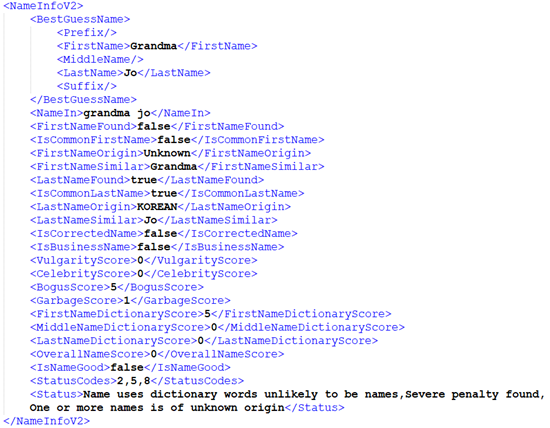
While someone going by “Grandma Jo” as a wholesome nickname does not immediately raise red flags, it still speaks to the issue of driver/passenger safety and comfort. Fake or misleading names can lead to difficult pickups and other uncomfortable experiences.
As the provider of such a service, validating driver and passenger information should be of paramount importance in order to guarantee the safest and most comfortable environment for everyone involved. Our name verification service can detect vulgar or explicit names and celebrity or cartoon character names as well, a common occurrence in the case of a user signing up for something without providing their real information. Name Validation can be integrated into apps to flag inappropriate names at point of entry, and we can also scrub your database of names using a one-time batch procedure.

